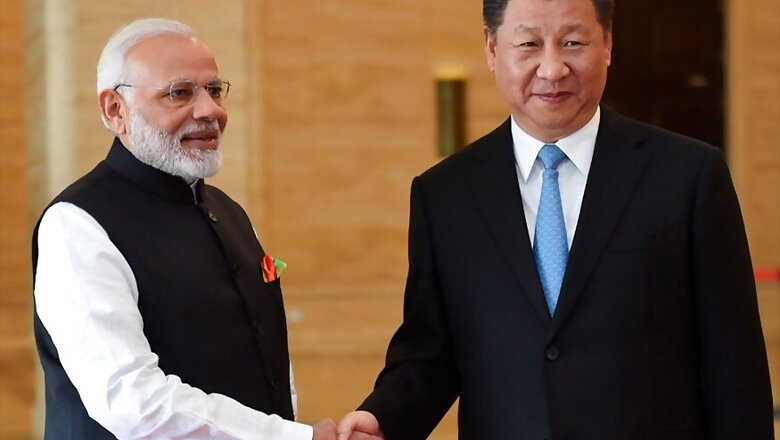
views
New Delhi: A little over a year ago, when Prime Minister Narendra Modi and Chinese President Xi Jinping met for their first “informal summit” in Wuhan by the banks of the river Yangtse, the Sino-Indian relationship was at an ebb. Just months earlier, Indian and Chinese troops were eyeball to eyeball in the Doklam plateau.
The standoff in Bhutan lasted 73 days and emerged to be one of the most direct confrontations between the two nations to have raised its head. Yet, when the two leaders met in Wuhan, they managed to move past it as well as other irritants.
As the ancient port town of Mamallapuram in Tamil Nadu prepares itself for the second key informal summit between the two leaders, the relationship between India and China is once again under strain with the abrogation of Article 370.
Mamallapuram then presents an opportunity for both sides to repair what came to be known as the “Wuhan spirit”.
When Modi and Jinping held the first of its kind informal summit in Wuhan last year – in an unusual and unprecedented move -- they had set the ball rolling for closer ties between the two neighbours. During the two days, the leaders had met a total of six times, with four of these meetings being freewheeling one-on-one talks. After the summit, Modi and Xi arrived at common ground.
“The Wuhan Consensus showed that India and China cared enough about their larger relationship to move forward despite the differences. The effort, since Wuhan, has been to ensure that the differences don’t turn into disputes,” veteran journalist Suhasini Haidar said.
To this, former diplomat Phunchok Stobdan added, “Both Modi and Xi recognized the need to move forward (with the relationship) despite all the irritants that existed.”
For Haider, the discussion was freewheeling, one that allowed both leaders to move forward on a “much broader spectrum.” “Both are powerful leaders who are well entrenched in their respective positions domestically,” she said.
Experts argue that the Wuhan consensus has paid off for both sides. “While there have been tensions and few flashpoints now and then, there have been no major flare ups between India and China since Doklam. I think that speaks to the success of the Wuhan spirit,” Stobdan said.
China’s landmark decision to send a commerce minister to India and not block the blacklisting of Pakistan-based Jaish-e-Mohammed (JeM) chief Masood Azhar in May this year, along with India’s resolve to move forward with their large trade relationship despite the massive trade deficit, exemplify that no “irritants” were standing in the way.
Then came the events of August 5 when the government ended the special status accorded to Jammu and Kashmir under the country’s constitution and further downsized the region into two union territories.
According to Haider, this has put a considerable amount of strain on the Sino-Indian relationship and has, to an extent, ruptured the Wuhan spirit. “China will have three major concerns after India’s J&K move. The first, of course, are its concerns over the territories it claims for itself – Aksai Chin. But India can allay those fears by saying that nothing it does on territories it controls will alter the status quo of the dispute.”
The second concern, she says, will be the interests of its ally Pakistan and third are its own investments in the Belt and Road Initiative (BRI). “The BRI passes through Gilgit-Baltisan and all these statements coming in from Indian leaders on Pakistan Occupied Kashmir will worry China,” Haider said.
For Stobdan, Ladakh and not Kashmir, is the biggest irritant. “China was very happy maintaining status quo on Ladakh. It wanted the dispute to be open-ended. But, the decisive act of declaring the remote and picturesque part of J&K that borders China as a union territory, has caught Beijing by surprise,” he said.
Can the two leaders “repair” the Wuhan spirit? Stobdan believes it isn’t broken to begin with. “Wuhan spirit is not broken, but the atmosphere is vitiated. The Informal summit will aid in smoothening tensions between the two countries,” he said, “But don’t expect instant results for complex geopolitical differences.”
The format of an informal summit gives them that opportunity, Haidar said, “There are no set agendas stopping them from raising anything they want. They can raise all the issues they think are irritants because the scope of the summit is so broad. China can tell India about the concerns that it has and India can raise its own concerns,” she added.

















Comments
0 comment